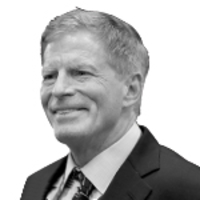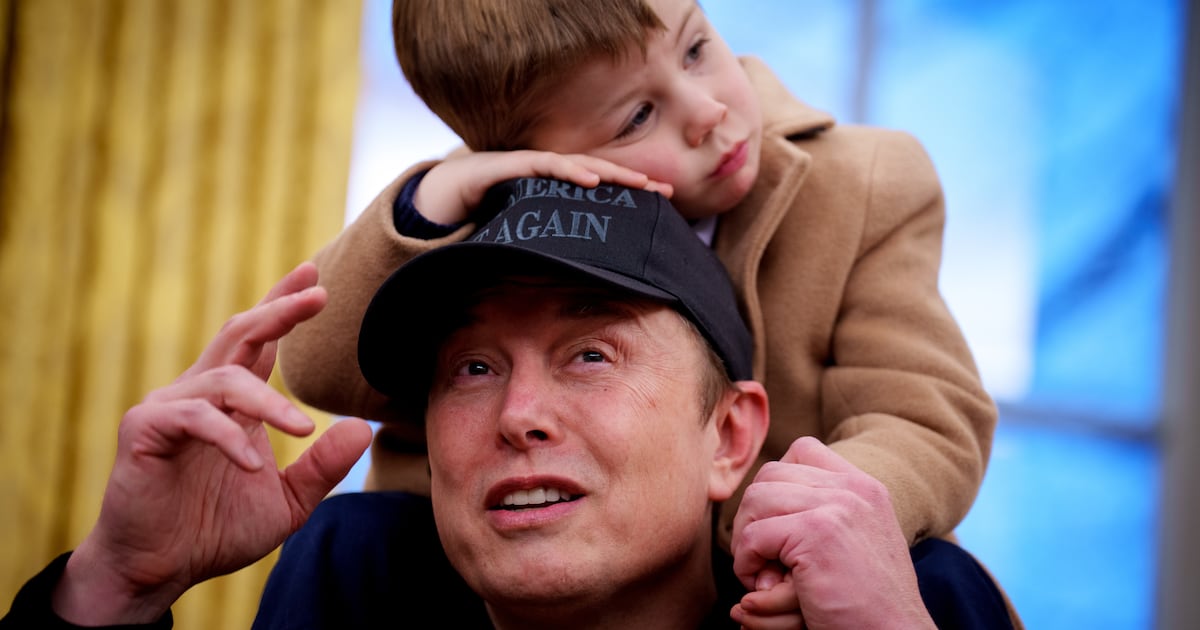Like a lot of moments that seem inevitable in the rear view mirror of history, Ronald Reagan’s October 27th, 1964 speech almost never happened.
For years, Ronald Reagan had been honing a speech he gave between acting jobs -- a combination of bio, political philosophy and a call to arms for the conservative cause. In August 1964, Reagan wowed the crowd at a Barry Goldwater fundraiser held at Hollywood’s classic Coconut Grove nightclub. In his autobiography, An American Life, Reagan recalled that after the fundraiser, a group of wealthy donors “asked me if I would be willing to repeat the speech I’d just given for Goldwater on national television if they could raise the money to buy airtime for it.”
Reagan agreed. Worried that it would be flat without an audience, he delivered it before a crowd of Republicans in an NBC studio. It was scheduled for a nation-wide half hour run in prime time on Oct. 27th, 1964. As an election tactic, it was a Hail-Mary move: a half-hour address by an aging actor of no political standing or constituency.
Not surprisingly, some around Barry Goldwater thought it was a lousy idea. “A few days before the speech was scheduled to go on the air,” Reagan later wrote, “I got a call from Barry Goldwater. He sounded uneasy and a little uncomfortable. Some of his advisers, Barry said, wanted him to use the airtime that had been purchased for my speech to rebroadcast a videotape of a meeting he’d had at Gettysburg with Ike Eisenhower.”
Reagan knew the speech worked in front of a Republican audience and was savvy enough in the ways of television to appreciate the awfulness of the proposed replacement. “I’d seen the film showing Barry’s meeting with Eisenhower at Gettysburg and didn’t think it was all that impressive,” Reagan wrote in a nice bit of understatement. Reagan made the case for his speech, and Goldwater was persuaded.
It became an overnight sensation. In retrospect, it was a perfect political moment for Reagan: No one blamed him for the Goldwater loss and, at a time when the Republican Party was desperate for leadership, he was a potential star. That spring, a group of wealthy donors approached Reagan with the idea of running for California Governor. “After I heard what they said,” Reagan wrote, “I almost laughed them out of the house. I can’t recall my exact words, but I said, in effect, ‘You’re out of your mind.’”
There’s no reason to believe this is false modesty. While he had grown increasingly interested in politics as his film career faded, he was an actor whose world was still much more show business than politics. This was still the Ronald Reagan who’d asked his pal William Holden to be his best man when he married Nancy.
It’s interesting to think how different history might have been if that Eisenhower meeting Barry Goldwater had aired instead of Reagan’s speech. “I didn’t know it then,” Reagan wrote, “but that speech was one of the most important milestones of my life.”
Sixteen years later Ronald Reagan won the Presidency. In the interim, Reagan was elected governor twice, ran for president twice, and gave countless speeches, including a beautifully crafted 1980 acceptance speech. Over the next eight years, President Reagan gave many great speeches: the emotional ode to the fallen in Normandy, the Berlin “Tear down this wall” challenge to Gorbachev, the sorrowful, elegiac tribute to the lost Challenger astronauts. But the October 1964 telecast is still regarded as the defining Ronald Reagan speech.
The enduring quality of “The Speech” lies in the perception that it both launched the career of one of conservatism’s greatest figures and “defined conservatism for fifty years,” as Craig Shirley, author of two superb books on Reagan, put it.
It was also unusually structured. There was no warming up of the audience with an opening bit of humor, or an attempt to deliver a tough message in a feel good package. It started with the blunt assertion that things were worse than most of the public realized.
“Now, one side in this campaign has been telling us that the issues of this election are the maintenance of peace and prosperity,” Reagan proclaimed in the opening minute. “The line has been used, ‘We've never had it so good.’ But I have an uncomfortable feeling that this prosperity isn't something on which we can base our hopes for the future.”
Reagan proceeds to paint a grim picture of the State of the Union, starting with the economy and moving to Vietnam. “No nation in history has ever survived a tax burden that reached a third of its national income,” he warned. “We haven't balanced our budget 28 out of the last 34 years. We've raised our debt limit three times in the last twelve months, and now our national debt is one and a half times bigger than all the combined debts of all the nations of the world.”
At a time when support for fighting Communism in Vietnam was rarely challenged, he asked a blunt question that was years before it’s time: “As for the peace that we would preserve, I wonder who among us would like to approach the wife or mother whose husband or son has died in South Vietnam and ask them if they think this is a peace that should be maintained indefinitely?”
In a message that would resonate profoundly if given today, he warned against the intrusive power of a faceless state. “I think it's time we ask ourselves if we still know the freedoms that were intended for us by the Founding Fathers.”
It was a deeply contrarian speech when the hope of a “Great Society” was at a peak, when it was still possible to believe we could win decisively in Vietnam and housing projects were a sure stepping stone to a better life.
“If government planning and welfare had the answer, shouldn't we expect government to read the score to us once in a while?” Reagan asked, “Shouldn't they be telling us about the decline each year in the number of people needing help? But the reverse is true. Each year, the need grows great, the program grows greater.”
All good speeches have a consistent theme, and Reagan’s was mistrust of government and faith in the individual. As he would later prove in sweeping victories, it was a message he believed transcended ideology and party.
“I believe that the issues confronting us cross party lines,” he said, reminding the audience of his history as a Democrat. “You and I are told increasingly we have to choose between a left or right. Well I'd like to suggest there is no such thing as a left or right. There's only an up or down.”
Read today, the speech still vibrates with a passionate intensity rarely found in any contemporary political discourse. This wasn’t a focused-grouped, calculated appeal to different constituencies. It was the voice of one man, deeply troubled by the course of his nation. Just as the Gettysburg Address was written without expectation that it would find greatness, Reagan’s speech was not intended to launch a career or a movement. It was a message from the heart.
Like it or hate it, like him or hate him, on Oct. 27th, 1964, Ronald Reagan told America what he deeply believed. And it’s a hell of a speech.






